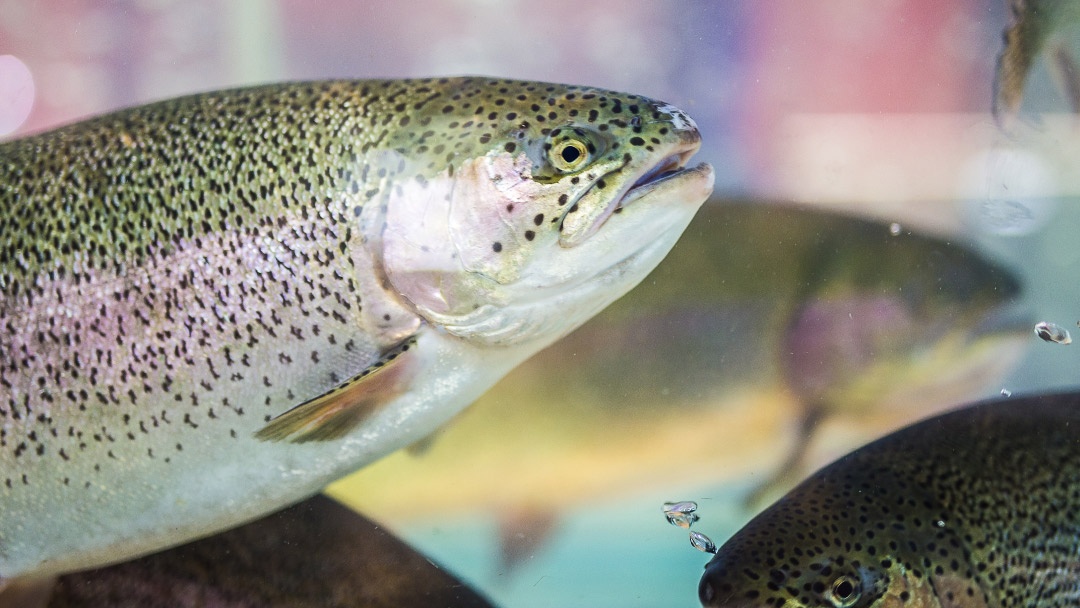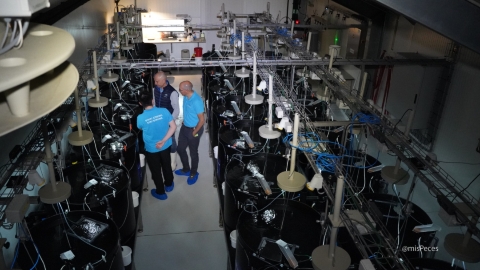
Researchers at the University of California, Santa Cruz, have developed an innovative new feed formulation for rainbow trout (Oncorhynchus mykiss) using the marine microalga Nannochloropsis sp. QH25. This breakthrough allows fishmeal to be completely replaced without compromising fish growth or nutritional value.
One of the initial challenges was the trout’s strong preference for the taste and aroma of traditional fishmeal-based feeds. To address this, the researchers incorporated taurine and lecithin into the microalgae-based experimental feeds, significantly enhancing palatability.
The study, involving over 500 trout and three different levels of microalgae inclusion (33%, 66%, and 100%), has been published in the journal Foods. The findings confirm that fish growth was not negatively impacted compared to conventional fishmeal-based feed.
The next goal for the researchers is to develop a completely marine-free feed, removing fish oil as well. This would further reduce the environmental footprint of aquaculture while increasing the competitiveness of microalgae-based diets.
Currently, the high production cost of Nannochloropsis sp. remains a barrier to its large-scale application in aquaculture. However, advances in cultivation technologies and greater collaboration with the industry could drive down costs, making this sustainable ingredient more commercially viable.
This research represents a significant step towards a more sustainable future for aquaculture, reducing its dependence on wild fish stocks and contributing to a more eco-friendly global food system.


